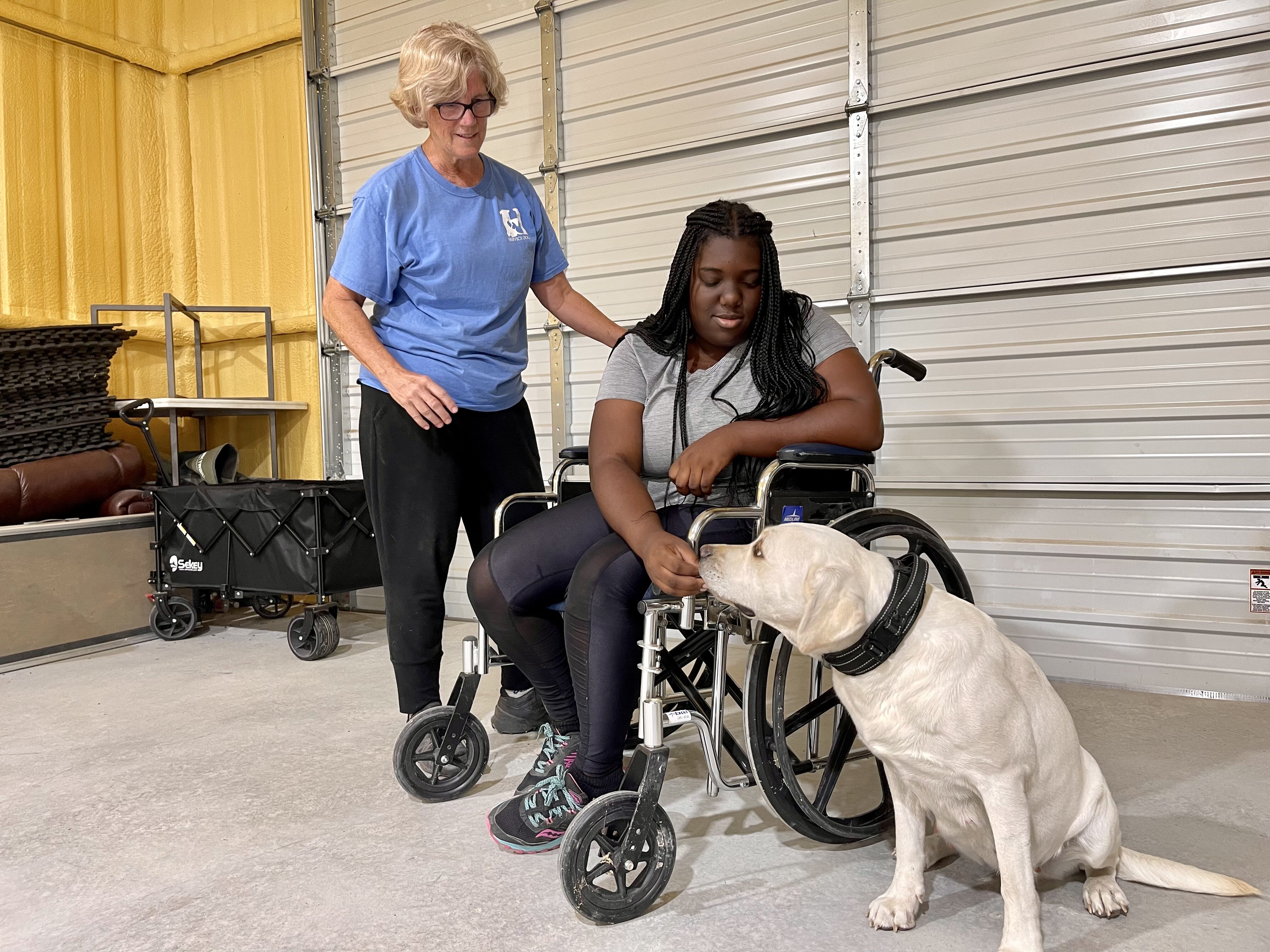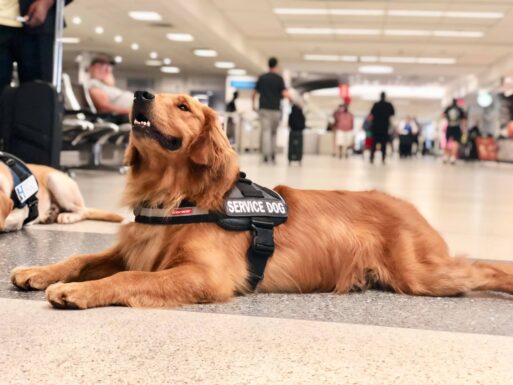Service dogs are trained to dutifully perform tasks that help improve the quality of life for individuals with disabilities. These remarkable dogs are once again evidence of the incredible ways that man’s best friend brings immense value to our lives.
Due to the important nature of their work, it is imperative that service dogs are able to perform their given tasks in almost any environment. In addition, while there are several legal protections afforded by legislation like the Americans with Disabilities Act (ADA) that enables service dogs to go places that other dogs cannot, there is also a responsibility for the dog to be under control in these environments. This can make service dog training a complex and time-consuming task, as the dog has to be reliable in any number of settings. This is where a skilled service dog trainer can make a huge difference to the training process.
What is the role of a service dog trainer?
A service dog trainer is primarily responsible for ensuring that the chosen dog is able to perform their tasks reliably and confidently in different situations. However, the real-world practice and proofing of those given tasks is one of the final pieces of the puzzle for a service dog trainer. The entirety of the process may include puppy selection and temperament testing, building foundational behaviors like obedience, socializing and generalizing the dog in different settings, and task training. In addition, the trainer has to be able to work with the handler and teach them how to handle the dog. These steps are detailed below.
Early training and socialization
Once a canine candidate has been selected for service dog work, the trainer will build a foundation of early obedience training and exposure to different environments. This is vital because without this solid foundation in place, it will be difficult to teach the behaviors necessary for task training. In addition, socialization ensures that the dog builds confidence around new people, new dogs and new smells. This process has to be carefully managed by the trainer to ensure the dog has a calm, stable temperament that is suitable for their job.
Teaching task-specific skills
Service dog tasks are tailored for the handler based on their disability and how the service dog can best be of assistance. Below are some examples of the tasks that a service dog trainer may train:
- Mobility service dog – Retrieving dropped items; mobility assistance; stability assistance; turning on light switches.
- Autism service dog – Deep pressure therapy (DPT); tethering; tactile stimulation; emergency down.
- Seizure service dogs – Alerting to the onset of a seizure; responding to a seizure.
- Medical alert service dogs – Retrieving medication; moving the handler to a safe place; pressing a button or barking to notify other household members of an emergency.
- Guide dogs – Safety when walking; ‘intelligent disobedience’ to keep their handler out of dangerous situations.
- Hearing service dogs – Alerting to smoke alarms or other ‘danger’ signals; alerting their handler that the doorbell is ringing.
The list above is not exhaustive. There are several other types of service dogs that can assist people with disabilities; the type of tasks that will be trained will vary depending upon the handler’s needs.
Exposure to real-world environments
As the process moves forward, the service dog trainer will then systematically expose the dog to different real-world situations that they will likely encounter when they are in a full-time role as a service dog. This builds on the earlier confidence work and will usually involve a wider range of scenarios – the service dog in training may be taken to busier places like airports, restaurants and shopping centers. The service dog trainer’s role is critical here – they need to assess how quickly the dog should move forward. Moving to a very complex scenario too quickly could result in a training setback.
Remember that service dogs are able to go to many public places where pet dogs are not permitted, and while it is not possible to train the service dog in every scenario they may find themselves in, exposing the dog as much as possible to different settings will help to generalize the behavior. If applicable, the trainer will also work on staging scenarios so that the service dog can practice performing their tasks in public (ex: moving an individual who suffers from PTSD away from busy crowds if they are having a panic attack).
Preparing the dog and handler team
The training process doesn’t end with the dog. The handler (and sometimes, their family members) must understand how the dog has been trained and what they must do to maintain that level of training moving forward. This stage will often see the trainer spend numerous training sessions with the handler to ensure that the handler-service dog communication is effective. This stage is absolutely crucial because if there is a communication gap, this can limit the extent to which the service dog can help.

What our Service Dog Trainer program offers
At the School for Dog Trainers, we offer an 18-week Service Dog Trainer program at our Hill Country Campus in Utopia, TX. This comprehensive course covers many important aspects of dog training so that trainers can gain an understanding of how dogs learn, but it also places an emphasis on topics that are relevant for service dog trainers. Students see first-hand all stages of the service dog training process, and are often invited to be part of training outings where the dog is worked in public to improve their confidence and capabilities. Legal frameworks related to service dogs (such as the ADA) are also covered within the program, enabling graduates to not just understand how to train a service dog, but how the law works in everyday situations for service dog handlers.
Many of our graduates have gone on to have successful careers focusing on service dog training, whether working for an established service dog training organization or starting their own business. Contact us today to find out more about our Service Dog Trainer program.

